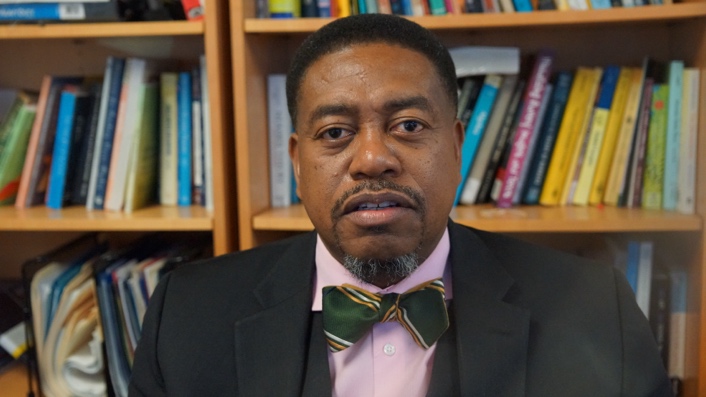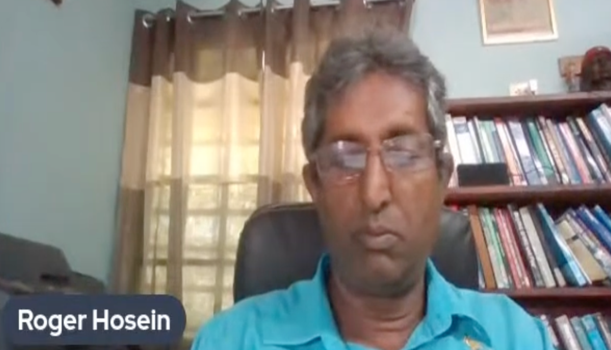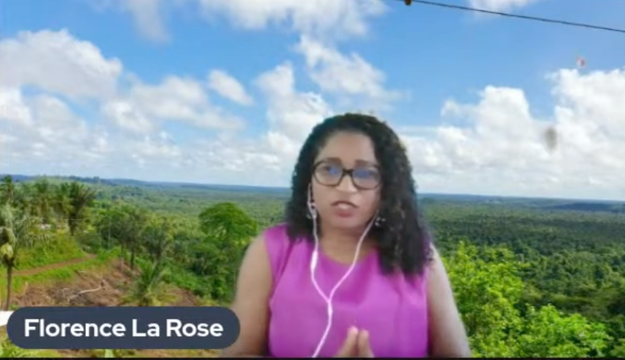Guyana’s Oil Boom
A Catalyst for Equitable Prosperity?
By
Dr. Terrence Richard Blackman

Guyana stands at a crossroads. The discovery of significant oil and gas reserves presents a unique opportunity to propel the nation toward socioeconomic transformation. However, translating this resource wealth into tangible benefits for all Guyanese citizens remains a critical challenge. ExxonMobil’s recent launch of oil production at Payara, the third project within the Stabroek Block, signifies a significant step forward, bringing Guyana’s total oil production capacity to an impressive 620,000 barrels daily. While this economic windfall holds immense promise, ensuring its equitable distribution and responsible management is paramount.
Beyond Boom and Bust: A Vision for Sustainable Growth

A recent impasse in wage negotiations between the Guyana Teachers’ Union and the Ministry of Education underscores the broader challenge of translating economic growth into improved living standards. This situation highlights the need for a comprehensive strategy beyond immediate spending increases. A forum hosted by the Guyana Business Journal (GBJ) and Caribbean Policy Consortium (CPC) titled “Maximizing Social Impact: Job Creation, Government Revenues, and Equitable Benefits in Guyana” provided valuable insights on navigating this critical juncture.
The forum, featuring prominent figures like Professor Roger Hosein and Florence Alexi LaRose, emphasized the importance of strategic planning and responsible management of oil revenues.
Professor Hosein cautioned against a “boom and bust” scenario, highlighting the need for a systematic approach that prioritizes sustainable development. Investing in education and skills training to equip the workforce for a changing economy emerged as a crucial theme. The government’s efforts to upgrade education and vocational training through initiatives like the World Bank-funded project and educational budget allocations demonstrate an awareness of this need.
Ensuring Equitable Benefits: Bridging the Gap

Equity is a central concern. Florence Alexi LaRose, an expert in sustainable development, highlighted the unique challenges faced by Guyana’s indigenous communities. Ensuring inclusive growth necessitates targeted investment in these communities’ infrastructure, social services, and education.
Balancing National and Regional Development: Building Trust
The forum also acknowledged the influx of foreign investment and international attention Guyana is experiencing. Transparency and responsible management of oil revenues are critical in fostering trust with the global community. Furthermore, Guyana’s development strategy should not come at the expense of regional cooperation.
A More Inclusive and Prosperous Future
The insights presented serve as a roadmap for Guyana’s future. By focusing on strategic job creation, responsible investment, equitable benefit distribution, and sustainable development practices, Guyana can leverage its oil and gas wealth to create lasting positive change for all its citizens. Collaboration between policymakers, the private sector, and civil society is essential. The urgency for open dialogue and critical thinking remains as Guyana strives to build a more inclusive and prosperous future for future generations.
We close by returning to the wage negotiations between the Guyana Teachers’ Union and the Ministry of Education: the teachers have advocated for seemingly substantial wage increases of 20% for 2019 and 25% annually from 2020 through 2023 for all teacher categories. However, there has been some progress: over 8,000 teachers saw salary adjustments from September 2020, amounting to $700 million, with graduate teachers being paid at the top of their salary scale. Moreover, incremental raises were secured—7% in 2021, 8% in 2022, and a proposed 6.5% in 2023—though these increments fall short of the union’s demands. While progress has been made with salary adjustments and incremental raises for teachers, the gap between the union’s demands and the government’s offers remains significant.
This stand-off exemplifies Guyana’s crucial tightrope – balancing immediate needs with long-term investments for a truly equitable future. Guyana’s oil wealth presents a golden opportunity to improve teacher salaries and propel the nation’s education system. Investing in educators directly translates to investing in Guyana’s future workforce and overall economic prosperity. The question now isn’t just about teacher compensation but the strategic allocation of resources to ensure a thriving future for all Guyanese. Can Guyanese policymakers bridge this divide and unlock the transformative potential of its newfound wealth? Only time and the decisions made today will tell.
Dr. Terrence Richard Blackman is a member of the Guyanese diaspora. He is an associate professor of mathematics, Chair, and a founding member of the Undergraduate Program in Mathematics at Medgar Evers College. Dr. Blackman is a former Dr. Martin Luther King Jr. Visiting Professor at MIT and a Visitor of The School of Mathematics at The Institute for Advanced Study. He previously served as Dean of the School of Science, Health, and Technology at Medgar Evers College, where he has worked for almost thirty years. He graduated from Queen’s College, Guyana, Brooklyn College, CUNY, and the City University of New York Graduate School.
